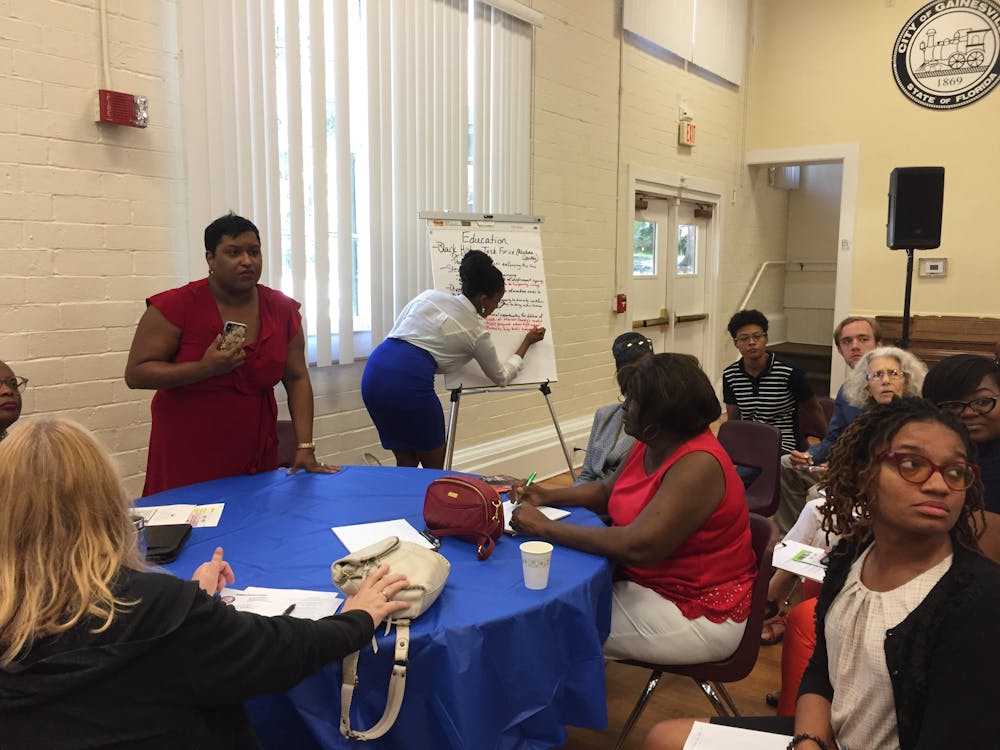When Ellie Chisholm grew up in Jacksonville, the only white people she met were the ones who picked up laundry from her grandmother’s house.
Chisholm wasn’t surprised when a 98-page UF report confirmed what people of color knew to be true, she said. Alachua County has a racial inequity problem.
The median income for white households in the county is $51,700, according to the report from UF’s Bureau of Economic and Business Research that was released in January.
For Hispanic households, the median income is $32,100, the report said. For black households, it’s $26,600, almost 50 percent less than white households.
More than 44 percent of Alachua County’s black children live in poverty, the report said. Fifty percent of high school dropouts are black.
Roughly 80 locals looked for solutions to bridge Alachua County’s racial gaps Saturday morning at the second of two meetings in the Thelma A. Boltin Center, at 516 NE Second Ave., at a talk about racial and economic disparities hosted by the city of Gainesville Office of Equal Opportunity.
The report compiled data on issues including law enforcement, unemployment and child poverty among Alachua County’s white, black, Hispanic and Asian populations.
The first meeting, Aug. 11, focused on healthcare, housing, law enforcement and transportation, according to the Facebook event.
The data brought Chisholm back to memories of using “colored” water fountains and growing up in poverty, she said.
“We could keep developing programs and coming up with all kinds of ideas, but until we address the root causes, I don’t think much is going to change,” she said.
After an hour of presentations, the audience split into breakout sessions at four tables to tackle issues, including education, economic well-being, employment and family structure.
Volunteers wrote down ideas on large notepads and presented what they discussed.
Chisholm went to both meetings to collaborate with residents. She sat at the economic well-being table because the topic struck a chord in her heart, she said.
“I lived it,” she said. “I experienced it.”
The residents at the table agreed the east side of Gainesville needs more sustainable jobs to support families, not those that pay minimum wage.
Barbara Herbert, 64, who retired from teaching in public schools 10 years ago, taught on both the east and west sides of Gainesville and noticed stark differences in student health, meals and education.
All parents want the best for their children, but income inequality can hinder success, she said.
“All children — all people — deserve opportunities in life,” Herbert said. “We don’t have a level playing field.”
Contact Amanda Rosa at arosa@alligator.org and follow her on Twitter at @AmandaNicRosa






